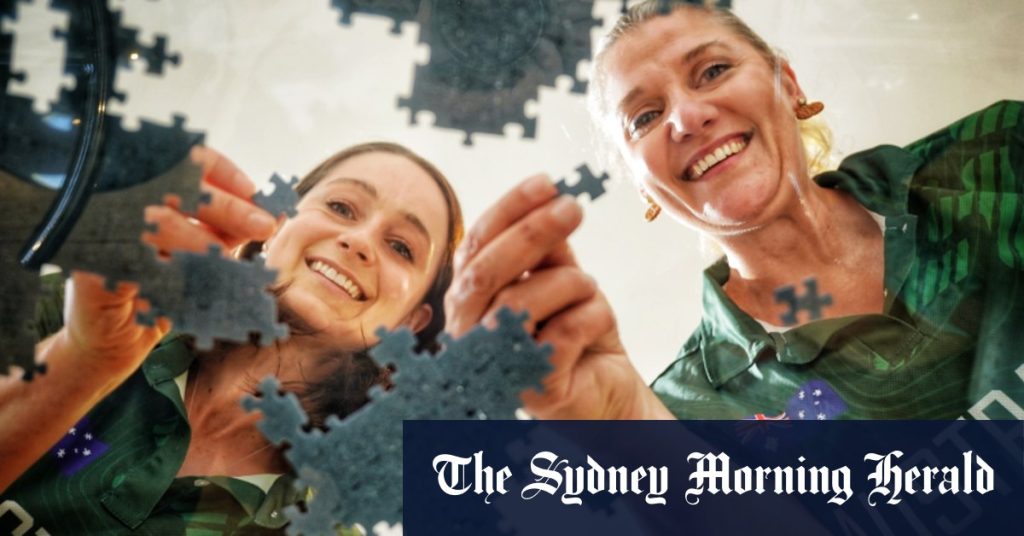Summarize this content to 2000 words in 6 paragraphs “They’re very shy and very unassuming, but they’re just super fast, and when you see them puzzle, you’re just in awe.“When you see them walk in front of you, [you’re] like, ‘Oh my god, that’s [Norway’s Kristin Thuv], oh my god, that’s [Spain’s Alejandro Clemente]’. They get selfies. They’re so popular.”Puzzlers’ husbands, affectionately known in Heidi Schwegler’s team as “puzzbands”, at last year’s world championships. From left: Bevan Coleman, Michael Vanka and Nathan Townsend.Schwegler’s team tries to meet weekly for up to seven hours of puzzling, and each person additionally aims to complete about two puzzles a day. The competition standard for solo puzzling is a 500-piece puzzle, which fast competitors can complete in under 60 minutes, and world champions can complete in as few as 35 minutes.In the lead-up to competitions, Schwegler’s team meets up to four times a week, sharing stacks of jigsaws between them.The process of forming a competitive team is often 90 per cent strategic, and 10 per cent social. Puzzlers try to find teammates with similar times and complementary skill sets, with each team dividing tasks such as arranging the edges, sorting pieces and building the body of the puzzle.LoadingTeam building can get political, too, Schwegler says. Her teammate, Jessica Bennett, who works in marketing and can solve a 500-piece puzzle in as few as 42 minutes, is moving to a faster team in the lead-up to this year’s event in Valladolid.“A lot of people are coming to the worlds that didn’t come last year, so we have to say, ‘This person needs to find a team, you’re being booted out’,” Schwegler says with a laugh.Reigning Australian nationals champion Katrina Coleman – who took out seventh place in the solo division at last year’s worlds – says speed puzzling fosters wonderful friendships, and is one of the few sports devoid of bickering or animosity.“It’s because we’re all competing against the puzzle, not necessarily against each other. So we’ve all got the common enemy,” she says.Like others in the puzzling community, the Tasmania-based champion, who works in caravan sales, expects the sport to grow in Australia. She began her own online puzzle contests business, Speed Puzzles Australia, in January 2024, and sold 20 registrations in 10 days.Last month, Coleman sold 120 registrations in two hours.The Australian Jigsaw Puzzle Association’s national championships in December attracted 385 solo competitors, which the association says is the most of any solo competition in world history.Our Breaking News Alert will notify you of significant breaking news when it happens. Get it here.
Keep Reading
Subscribe to Updates
Get the latest creative news from FooBar about art, design and business.
© 2025 Globe Timeline. All Rights Reserved.


